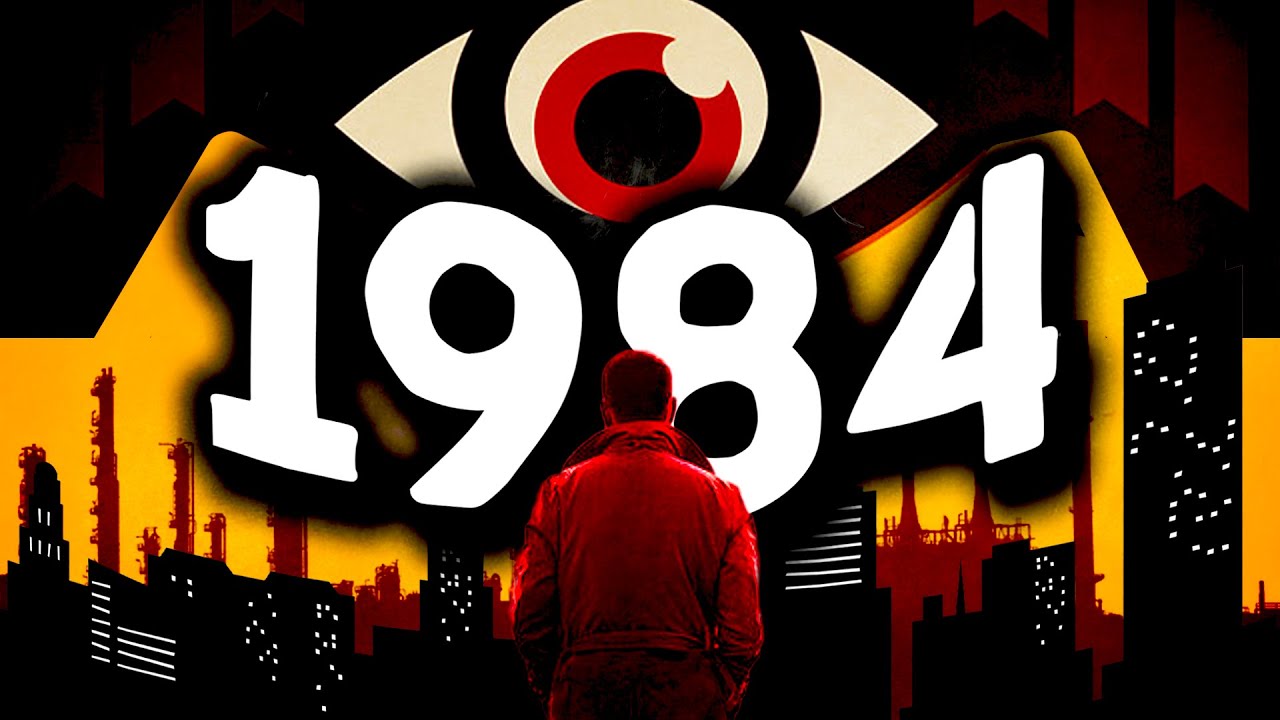
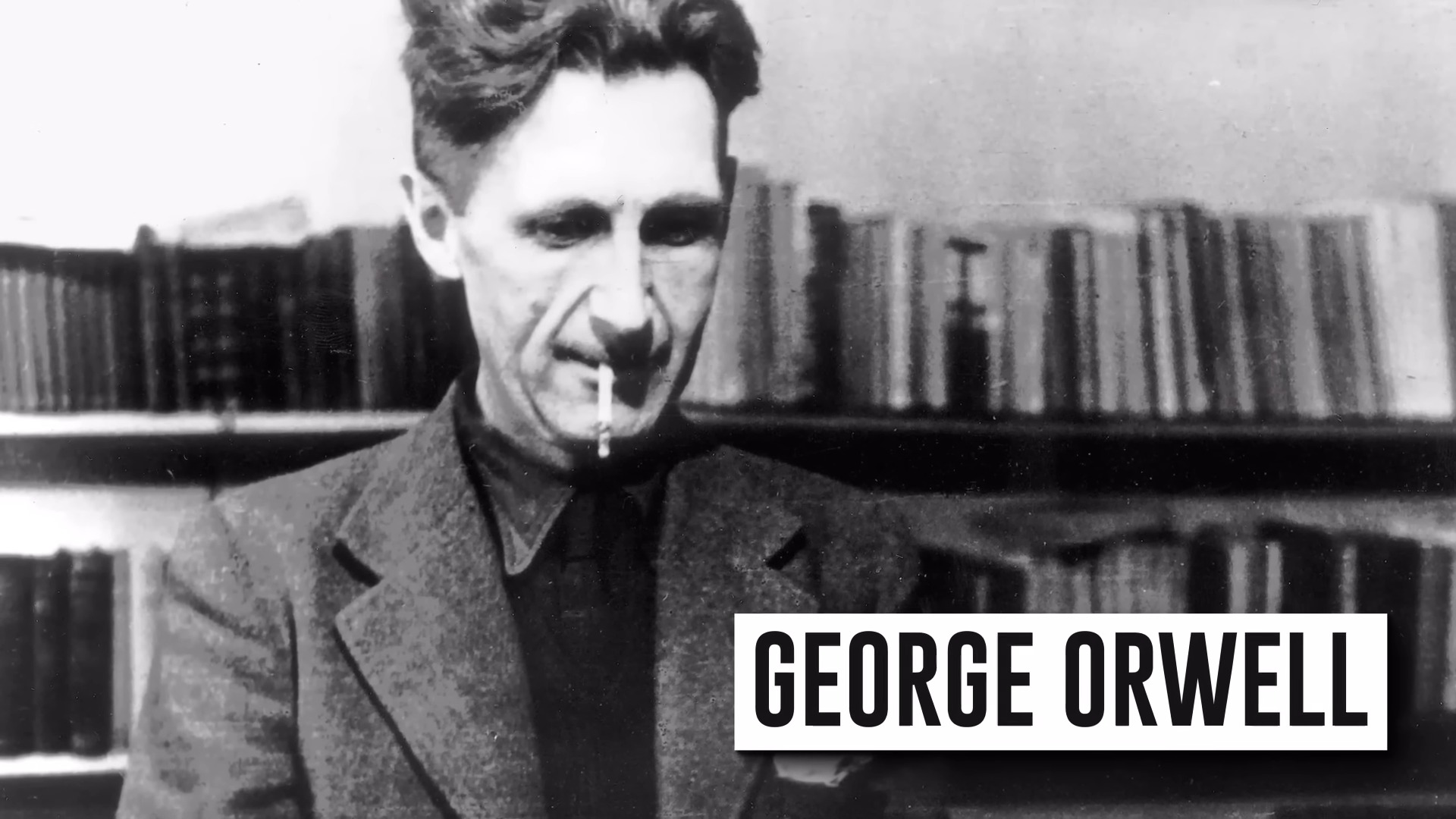
George Orwell penned his dystopian novel, Nineteen Eighty-Four, in the late 1940s, a time when the world was still attempting to comprehend the complexities of oppressive regimes such as Hitler’s Nazi Germany. What sets Nineteen Eighty-Four apart is its speculative yet accurate portrayal of the mechanisms of control and political force. Despite being categorized as science fiction, the novel offers a disturbingly precise mirror to the prevailing socio-political conditions, hinting at Orwell’s deep understanding of the sinister undercurrents of totalitarian regimes. His nightmare, as presented in the book, serves as a stark warning of the potential perversion of power and the chilling implications for individual freedom and democracy.
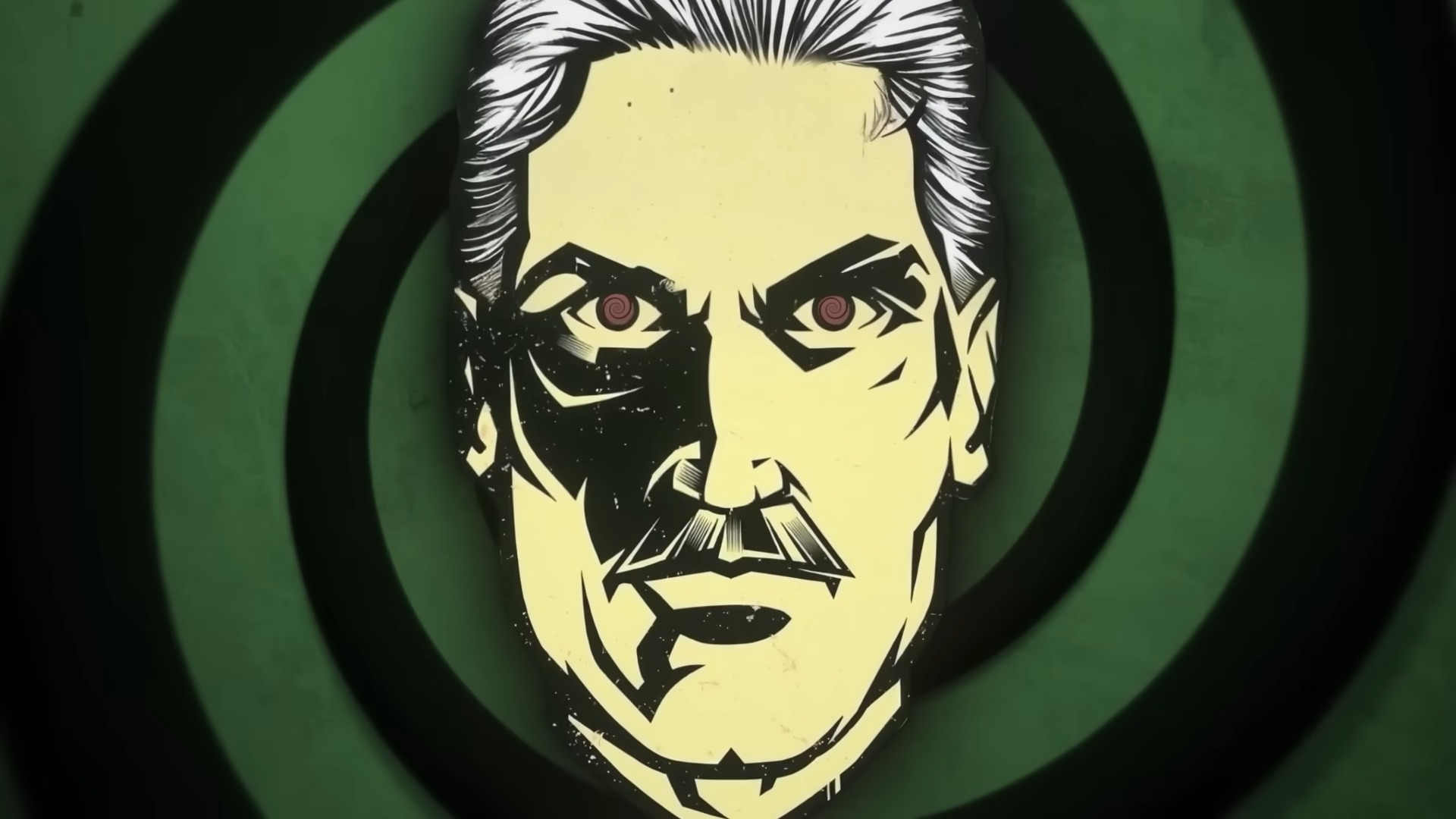
Orwell paints a vivid picture of an authoritarian regime that exploits fear and manipulation as tools of control. The book’s ominous depiction of a society where dissenting opinions are crushed, surveillance is ubiquitous, and freedom is severely curtailed, reinforces the inherent dangers of authoritarian leadership. The government’s control over every aspect of human life prohibits innovation, creativity, and above all, the innate human spirit to thrive. This dystopia is a powerful symbol of the dehumanizing potential of absolutist rule. The ramifications of such a system seep into the very core of human existence, stifling individuality and innovation, and creating an environment hostile to the development and flourishing of the human spirit.
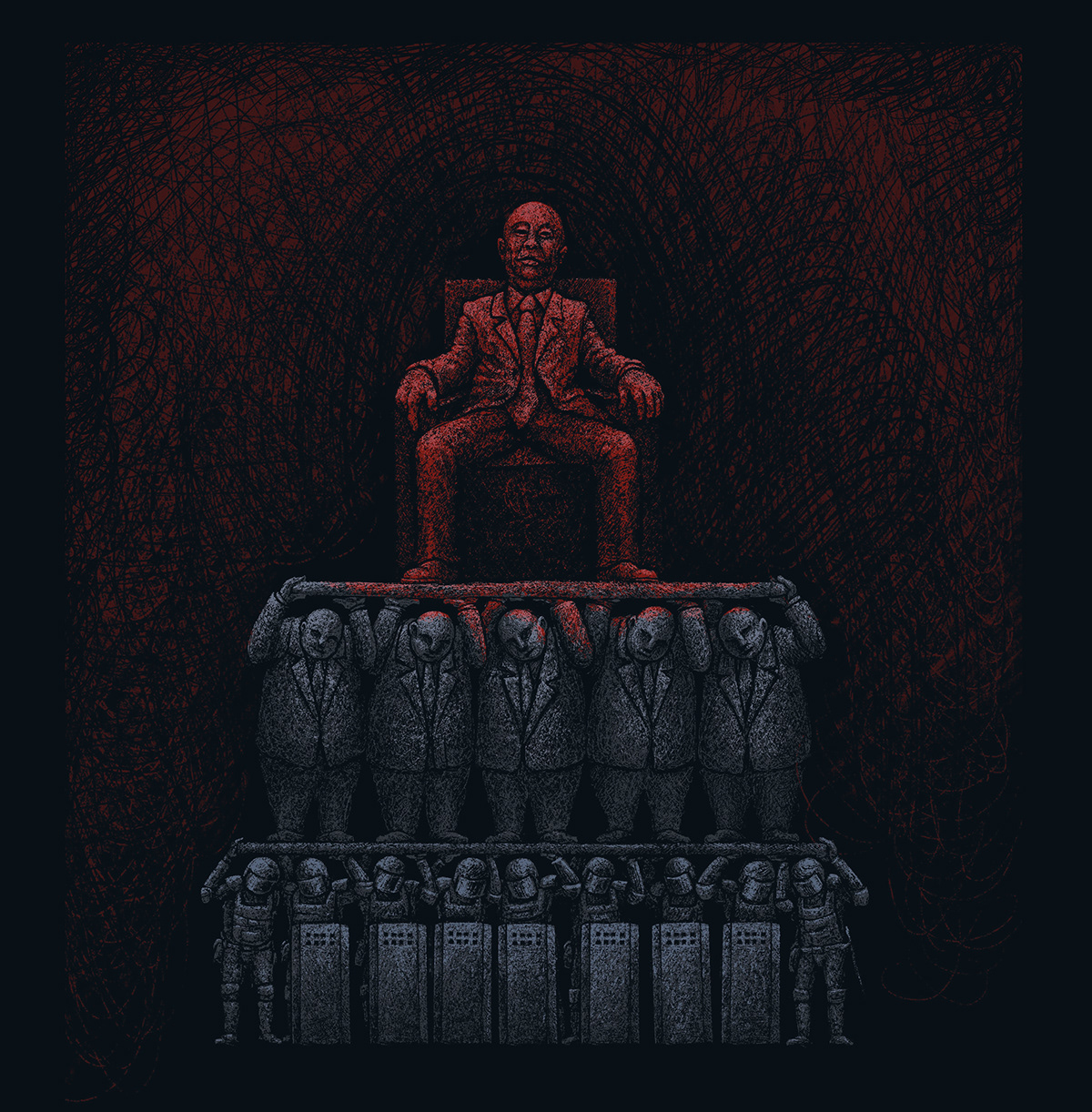
Torn Between Rebellion & Conformity
Orwell’s dystopia portrays surveillance as an omnipresent aspect of life in Nineteen Eighty-Four, enforced by the slogan “BIG BROTHER IS WATCHING YOU!” This chilling phrase stands as a potent symbol of the totalitarian regime’s intrusive reach into every facet of citizens’ lives. Big Brother, the ostensibly benevolent leader of Oceania, is ubiquitously represented as a mustachioed, robustly handsome man whose gaze seems to follow the observer from every angle. The underlying message of this disturbing visualization is twofold, serving both as a constant reminder of the Party’s omnipresence and as a tool to invoke fear and compliance.
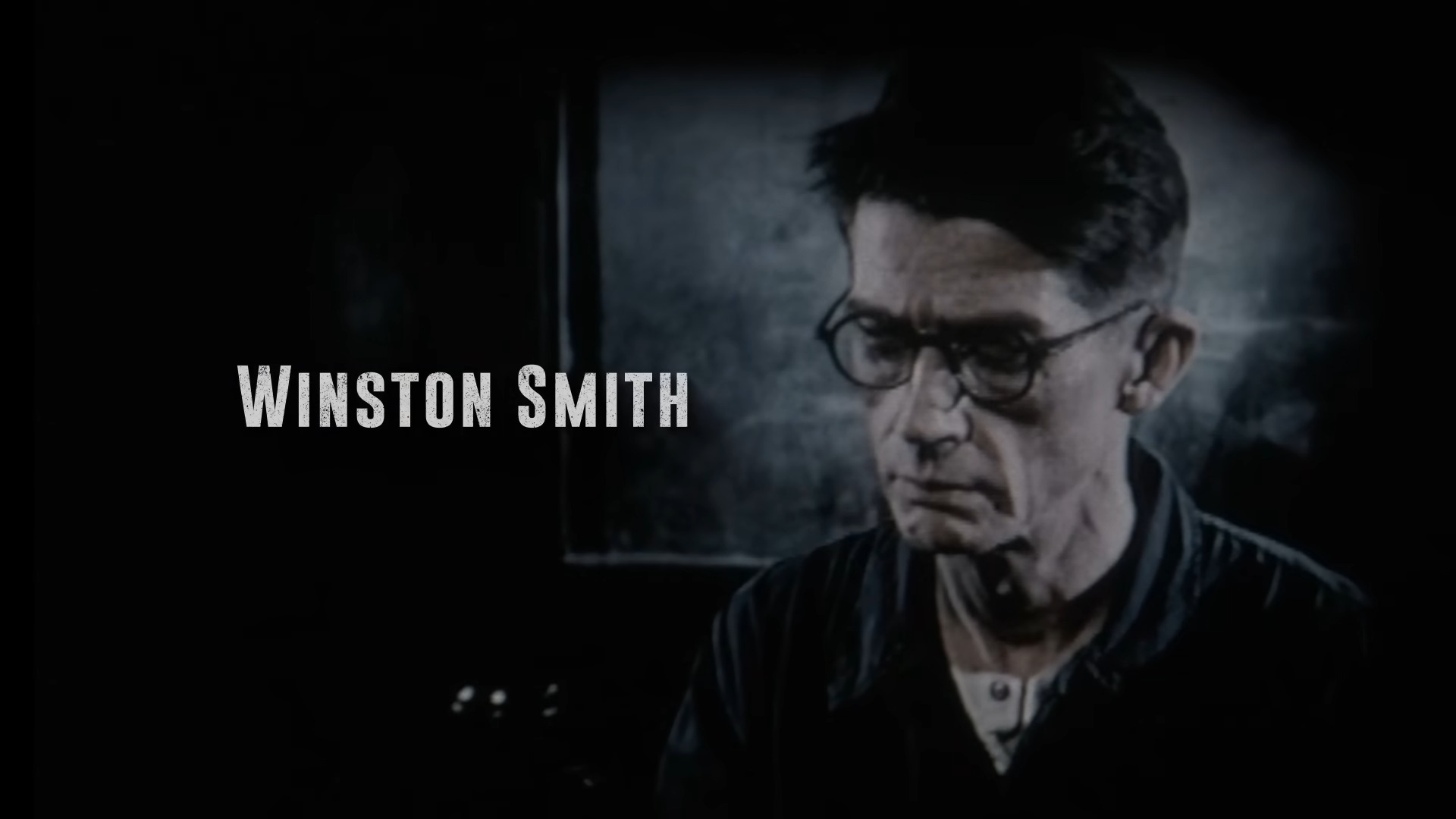
In Orwell’s bleak vision, the telescreen is a sinister instrument of control and surveillance. Installed in homes and public spaces, it serves dual purposes. On one hand, it broadcasts state-sanctioned programs around the clock, which citizens cannot switch off, thus infiltrating their minds with propaganda. Simultaneously, it serves as an ever-watchful eye, monitoring citizens’ activities even during their most private moments. The telescreen’s relentless watchfulness exemplifies the loss of privacy and autonomy in this dystopian society, demonstrating the horrifying extent of control exerted by totalitarian regimes.
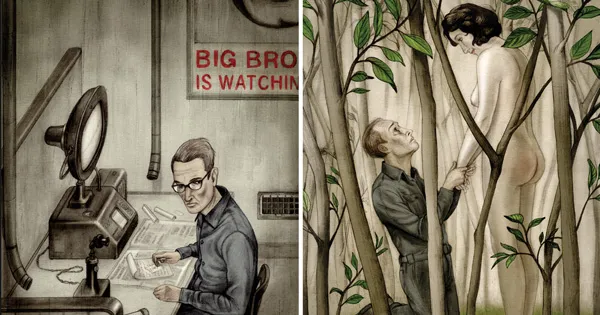
In Orwell’s grim landscape, resources are scarce and rationed, further underlining the totalitarian regime’s control over the populace. Essentials of daily life, such as food and clothing, are hard to come by. The scarcity of food serves as a stark reminder of the regime’s tight control over resources, making survival itself a struggle. The simple act of eating becomes an exercise in subsistence, with every scrap of food rationed and controlled by the state.
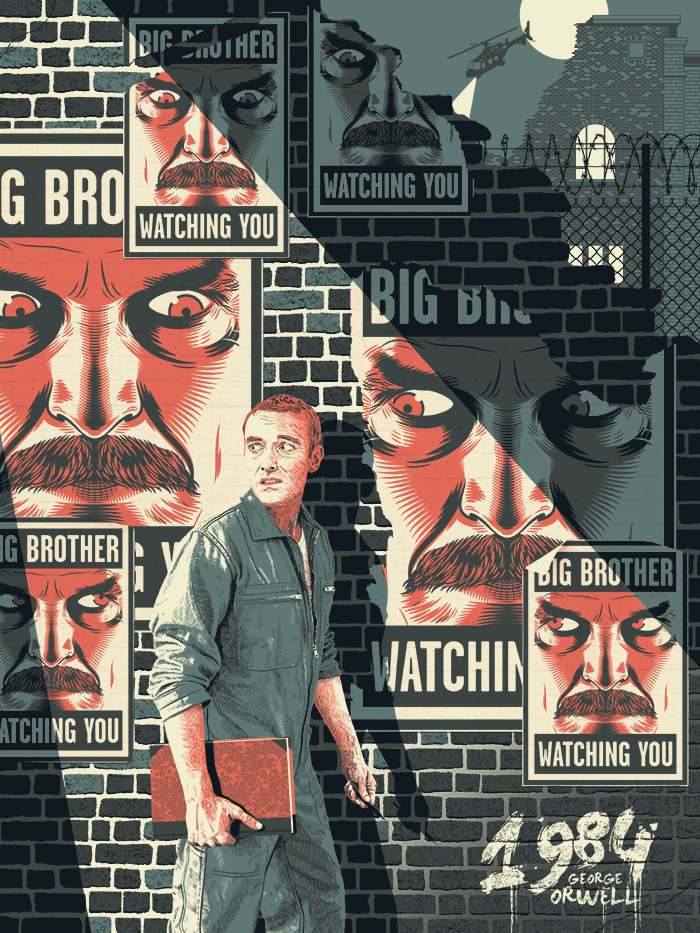
In addition to the food scarcity, things like razor blades, a basic necessity in ordinary life, are rare commodities. Their rarity echoes the deprivation and poverty that pervade society under the regime’s harsh rule. This isn’t a mere scarcity of supplies; it’s a well-orchestrated strategy to keep the populace in check, further entrenching the power of the authoritarian regime. By controlling access to even the most basic necessities, the regime maintains its stranglehold on the populace, keeping them perpetually dependent and powerless. The scarcity of food and necessities, therefore, isn’t just about physical deprivation; it’s a tool for psychological manipulation, designed to quash any possibility of rebellion or dissent.
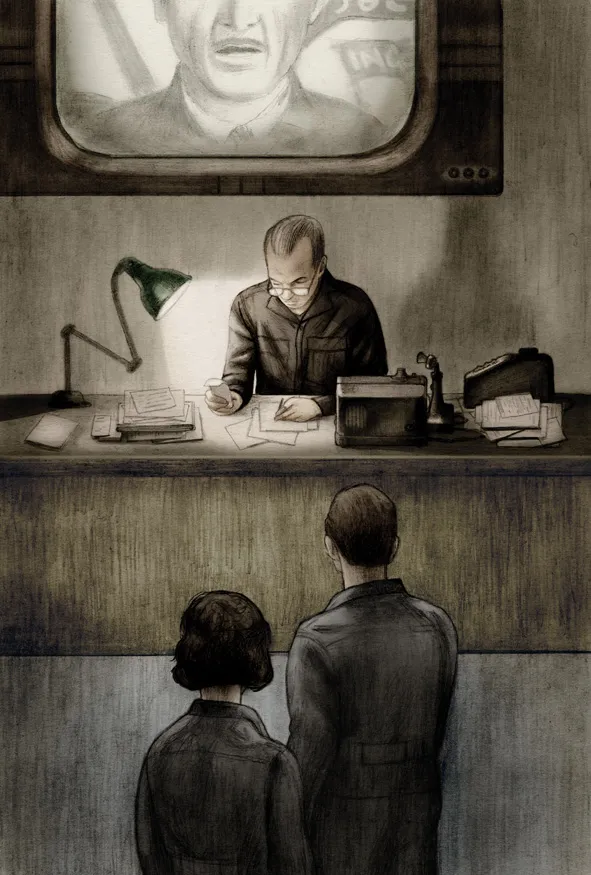
The Social Hierarchy of Oceania
In the starkly stratified society of Oceania, Orwell delineates three distinct classes of citizens. At the zenith of the societal order is the Inner Party, the powerful elite who administer the various ministries of the government. Holding the reins of power, these individuals manipulate the machinations of the state, perpetuating their rule through control and fear.
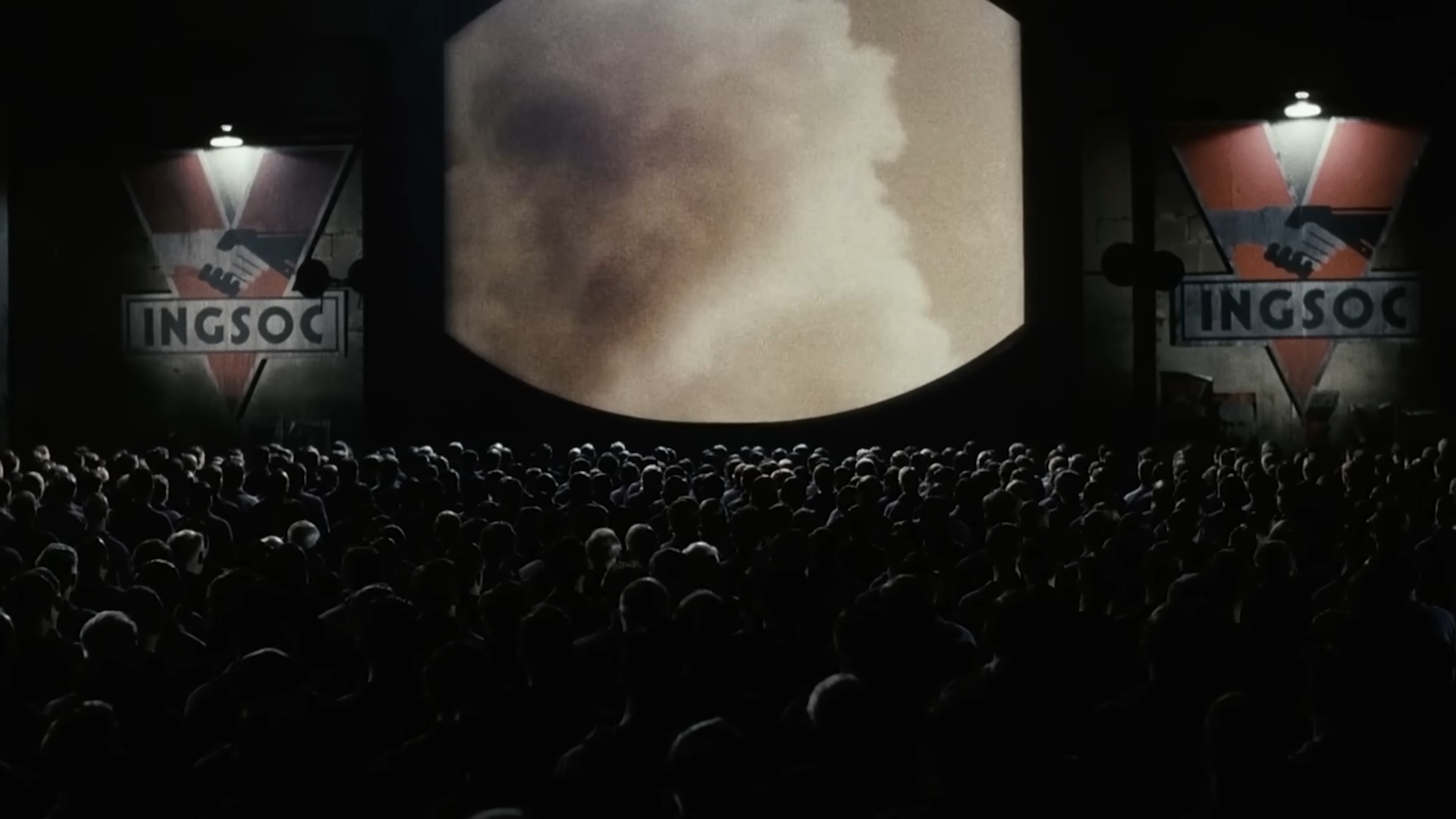
The middle rung of this societal ladder is occupied by the Outer Party members, comprising people such as Winston. They perform bureaucratic roles within the ministries, serving the state while simultaneously being its victims. Their lives are marked by constant surveillance and psychological manipulation, leaving them devoid of freedom and autonomy.
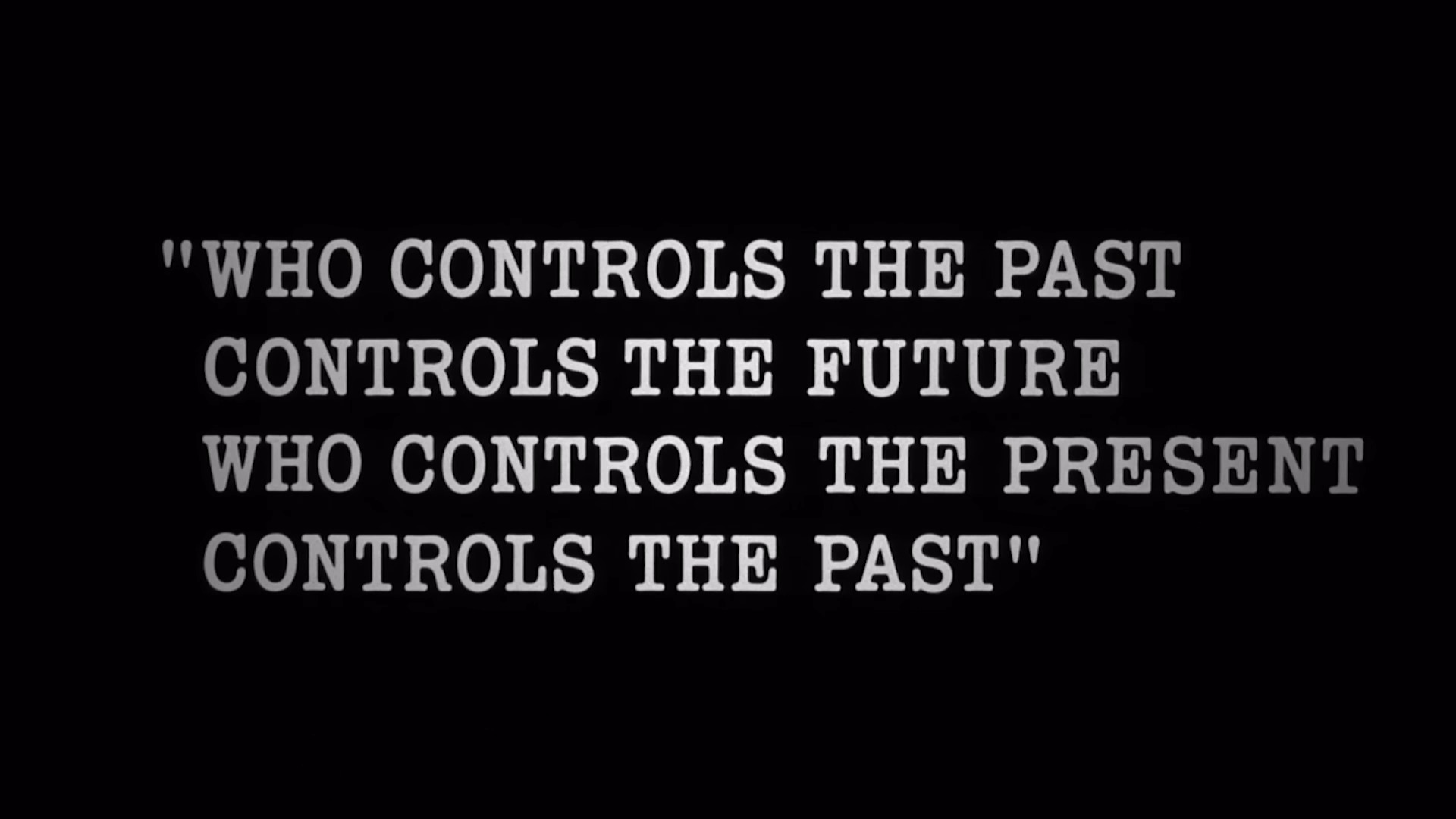
At society’s bottom are the ‘proles’, who engage in strenuous manual labor, such as mining. Despite their lack of political power, they represent the majority of Oceania’s population, yet their potential for collective action remains untapped due to the state’s shrewd control mechanisms.
All citizens, but particularly the Outer Party and the proles, are subjected to incessant, aggressive propaganda, epitomized by the daily ‘Two Minutes Hate’. This propagandistic tool serves to direct citizens’ anger and frustration towards perceived enemies of the state, whether they be party traitors or foreign adversaries. Through the manipulation of emotions, the regime cultivates a climate of fear and hostility, thereby suppressing any potential dissent and reinforcing its grasp on power.
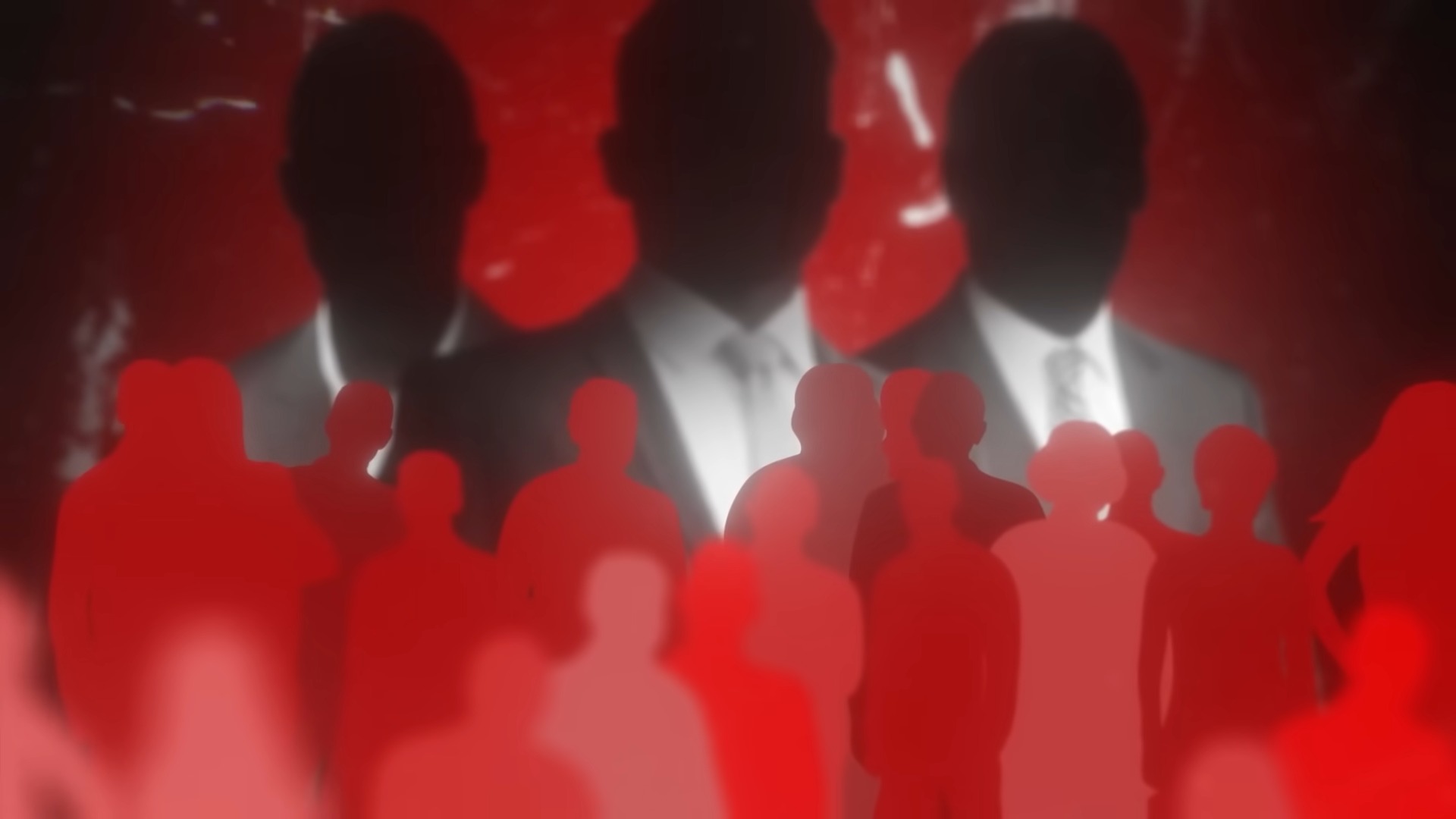
Winston’s Role and The Ministries
Winston Smith, the protagonist in Nineteen Eighty-Four, holds a position at the Ministry of Truth (Minitrue in Newspeak), the propaganda machine of the Party. His job involves the alteration of historical records to align them with the Party’s current version of events or “the truth.” As such, he meticulously revises old documents, effectively rewriting history to favor the Party’s narrative.
Other prominent ministries in Oceania include the Ministry of Peace (Minipax), which oversees the perpetual wars with Eurasia and Eastasia, the two other superstates in Orwell’s world. It stands as a paradoxical symbol of conflict and hostility, embodying the Party’s slogan “War is Peace.”
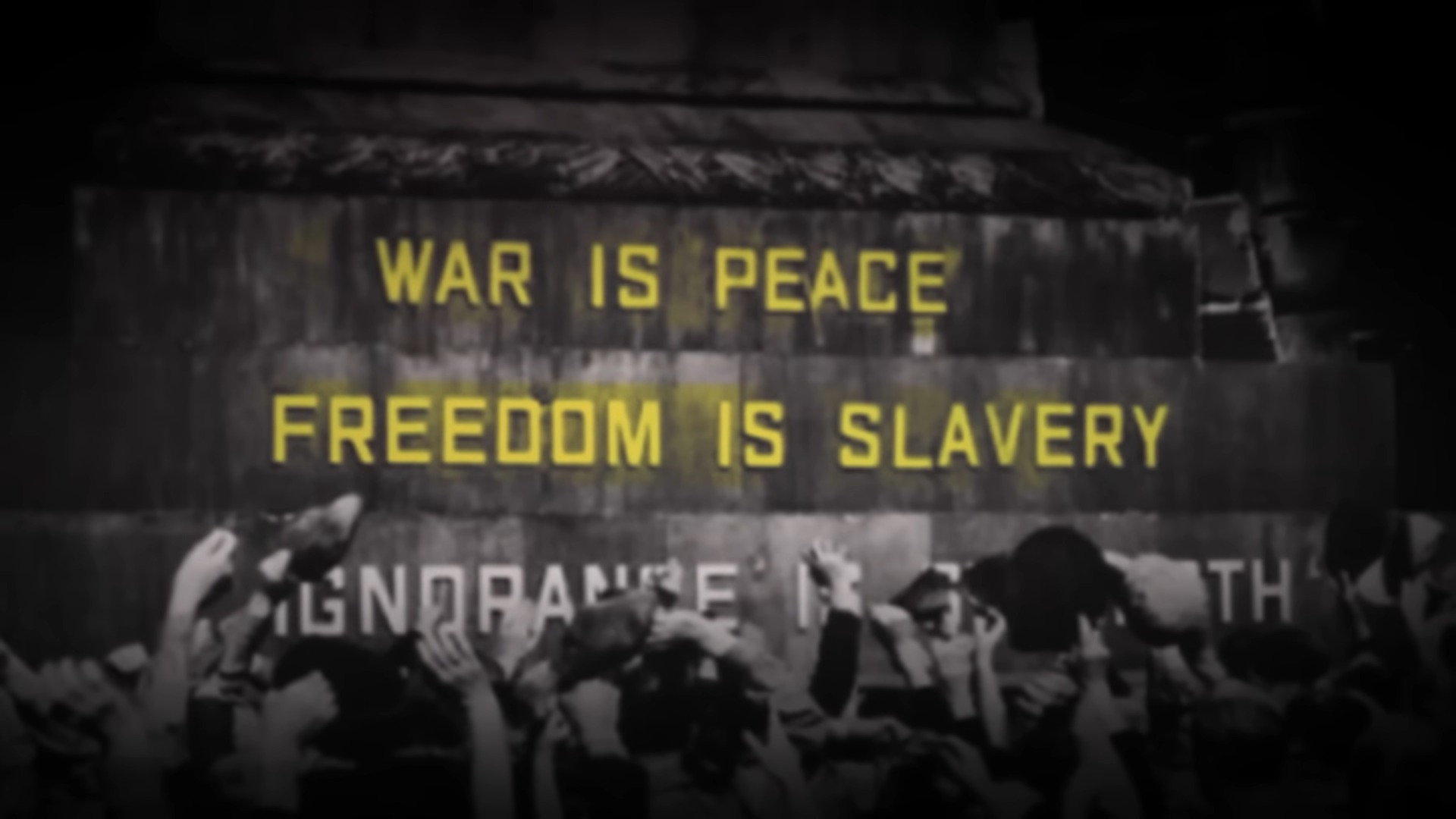
The Ministry of Plenty (Miniplenty) is tasked with the regulation of food, goods, and industrial production. It manipulates the scarcity of resources to control and suppress the population, reflecting the brutal reality of the slogan “Freedom is Slavery.”
Lastly, the Ministry of Love (Miniluv) is the most feared institution, responsible for surveillance, interrogations, and torture of those suspected of thought crimes – ideological disloyalty or rebellious thoughts against the Party. This ministry reinforces the chilling level of surveillance in Oceania, where even a misplaced expression or a word uttered in sleep could attract the wrath of the Thought Police, leading to the person’s vaporization– the complete erasure from all records and memories.
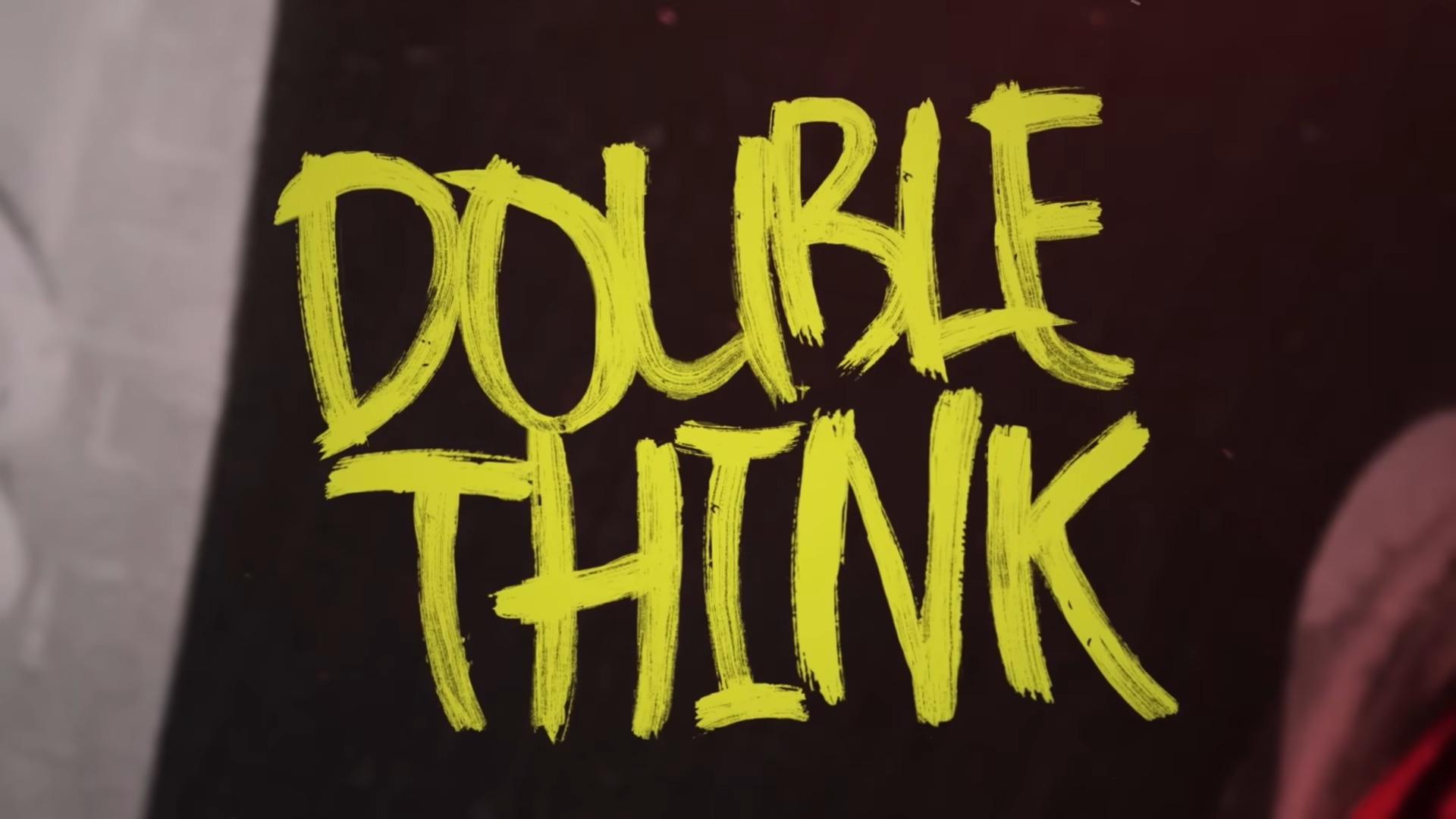
Each of these ministries serves to propagate one of the Party’s three main slogans, the last being “Ignorance is Strength.” The slogans, teeming with contradictions, encapsulate the Party’s manipulation of reality and truth, underscoring the terrifying power of totalitarian regimes.
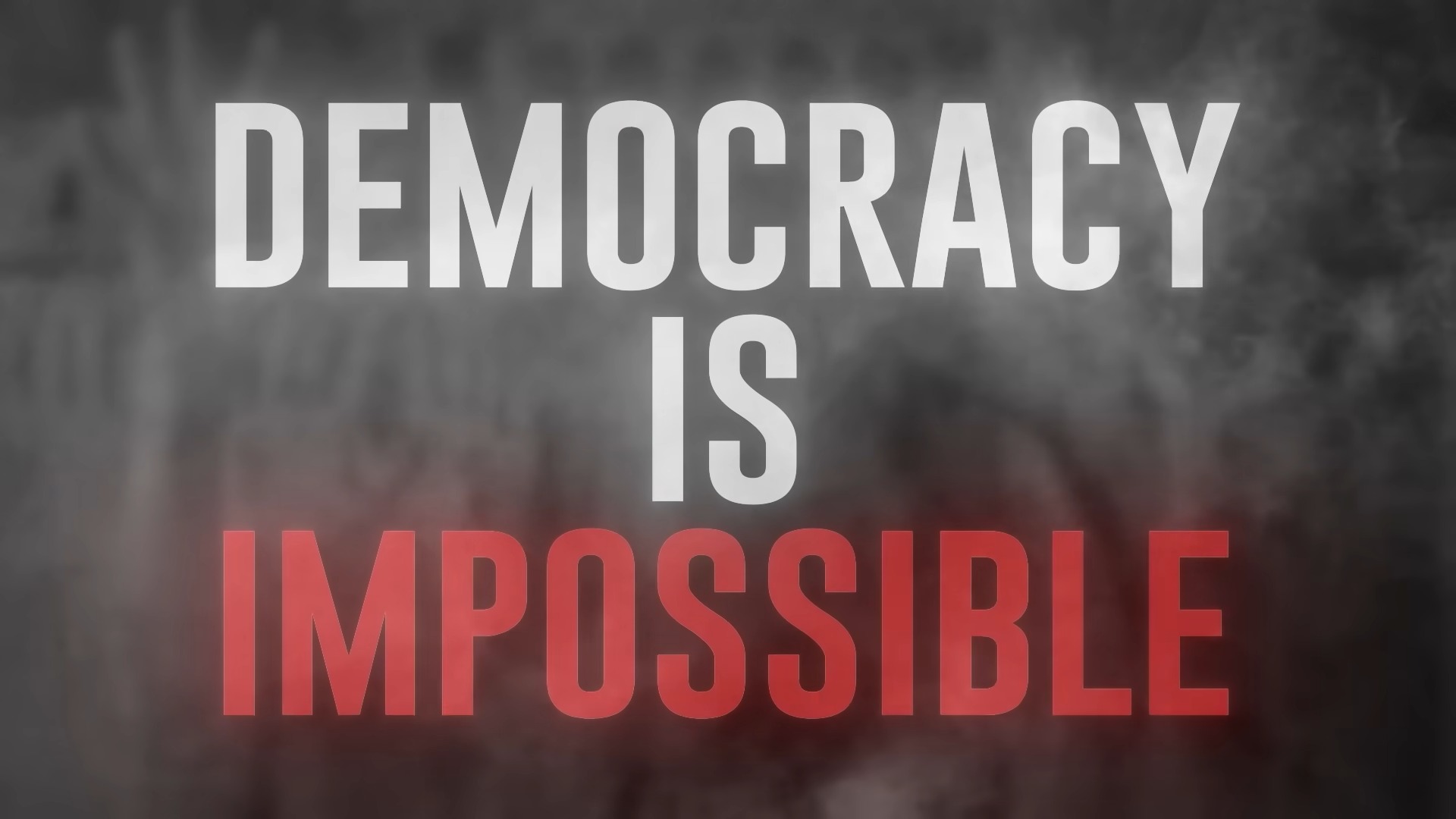
The Immutable Nature of Truth versus The Party’s Manipulation
Orwell’s Nineteen Eighty-Four persistently grapples with the mutable nature of truth under the rule of the Party. One motif that reverberates throughout the novel is the protagonist, Winston’s, desperate clinging to certain irrefutable facts. He profoundly believes in the mathematical certitude that two plus two will always equal four. However, the Party’s omnipotent control and its capacity to manipulate reality make him fear that they might one day declare two plus two equals five. What is more disturbing is the likelihood that people, under the Party’s influence, might unquestioningly accept this as the truth.
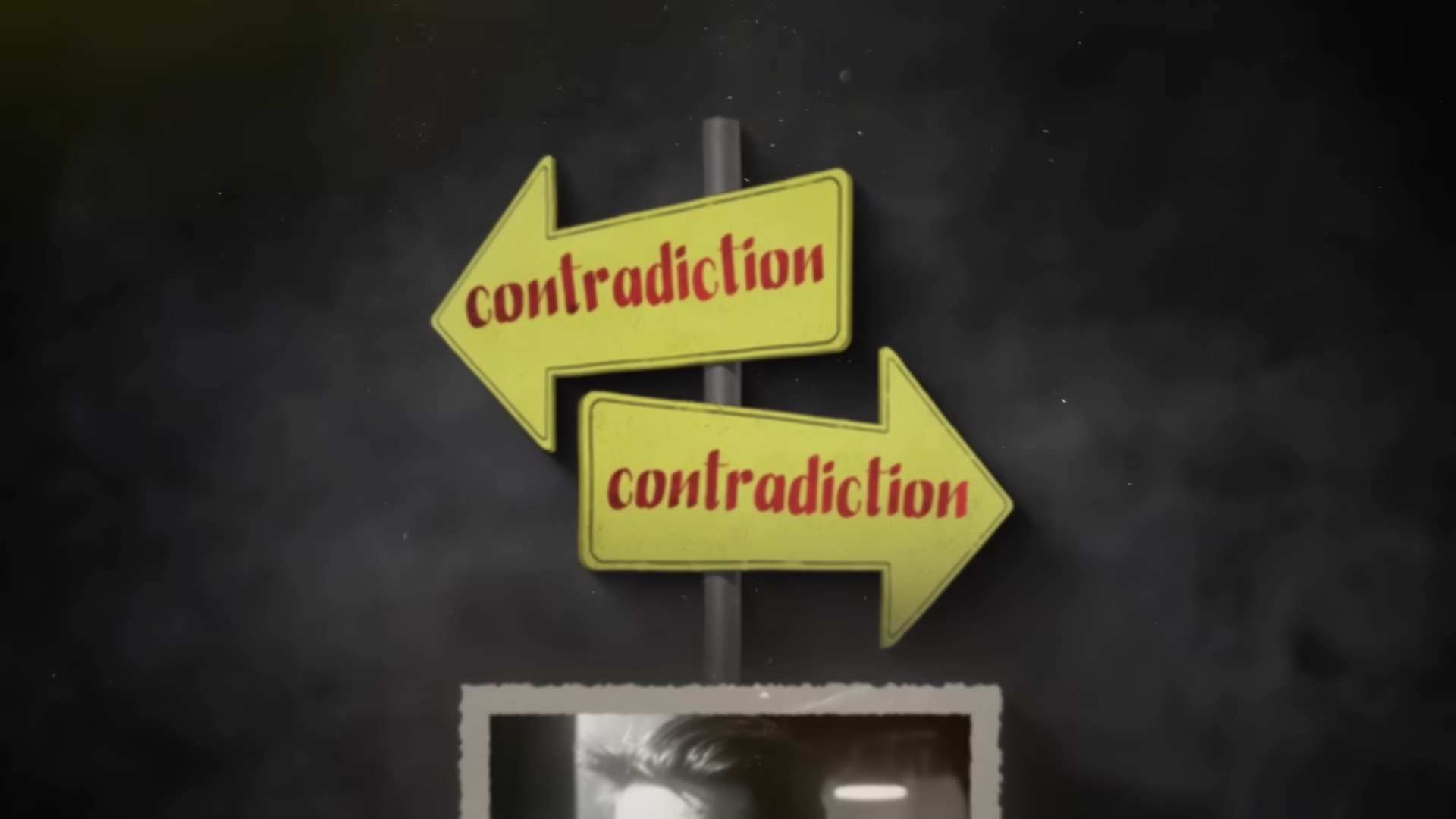
This fear is not unwarranted. As Winston’s role in the Ministry of Truth demonstrates, the Party frequently alters past records, effectively changing the perception of reality. Hence, were anyone to check those records in the future, they would find that, as per the Party’s decree, two plus two has always equaled five. This disturbing concept brings to light the Party’s insidious control over the population’s minds, reshaping their understanding of reality as it sees fit. The Party’s control is so pervasive that it can make the population believe anything, even something as counter-intuitive as two plus two equalling five. The malleability of truth in Oceania underscores the terrifying power the Party holds over its citizens, manipulating their perception of the world and warping their understanding of the truth.
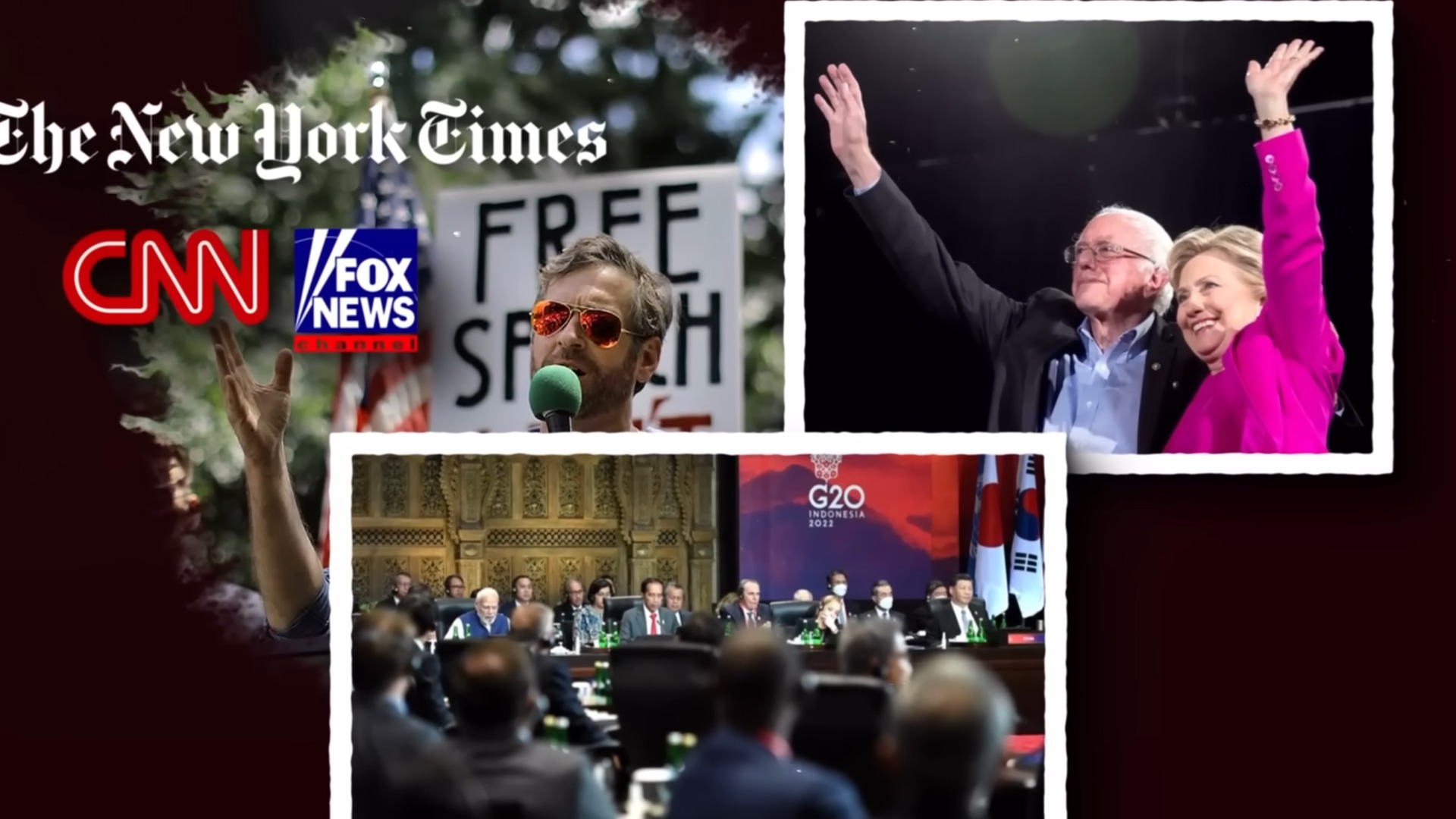
The advent of technology capable of constant surveillance invariably led to its exploitation as a tool for consolidating and maintaining power, especially to suppress the lower classes from posing any tangible threat. The imperative for maintaining a homogeneous culture is amplified due to its crucial role in preserving order. The state of perpetual war necessitates stringent enforcement of borders, compelling the superstate to vilify anything and anyone deviating from the norm. Winston’s experiences underscore this reality: the unrestricted movement of individuals across state borders is prohibited. Any semblance of acceptance or tolerance is discouraged; instead, the seed of hate is sown and nurtured. It is through these means that the status quo is maintained; without them, the entire system would crumble.
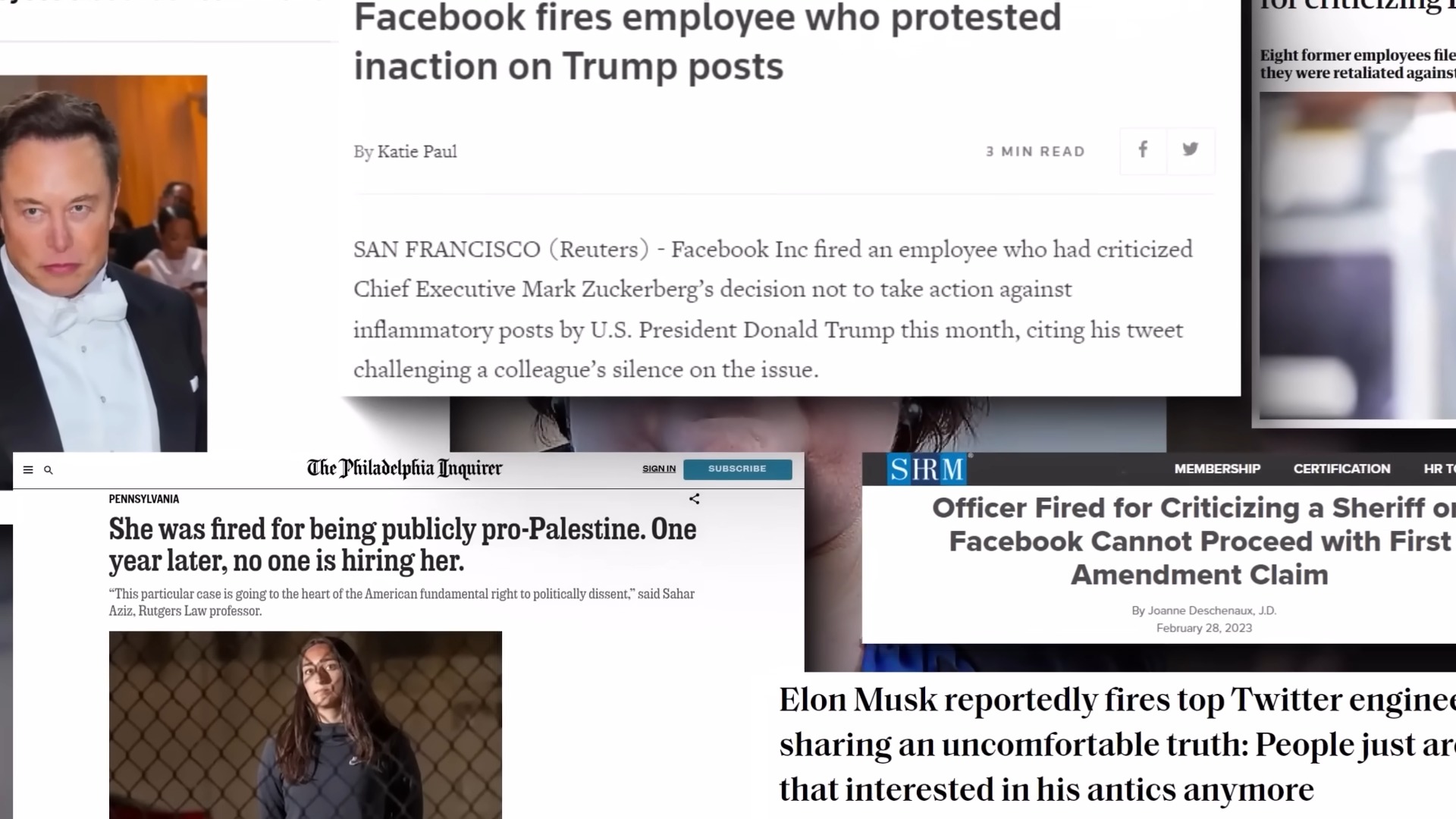
Doublethink and The Party’s Philosophy
In Nineteen Eighty-Four, the term “doublethink” represents the Party’s psychological control mechanism that compels citizens to accept two contradictory beliefs simultaneously as correct. This concept is a key pillar of the Party’s philosophy and serves to manipulate the perception of reality and truth, ultimately distorting citizens’ understanding of the world around them.
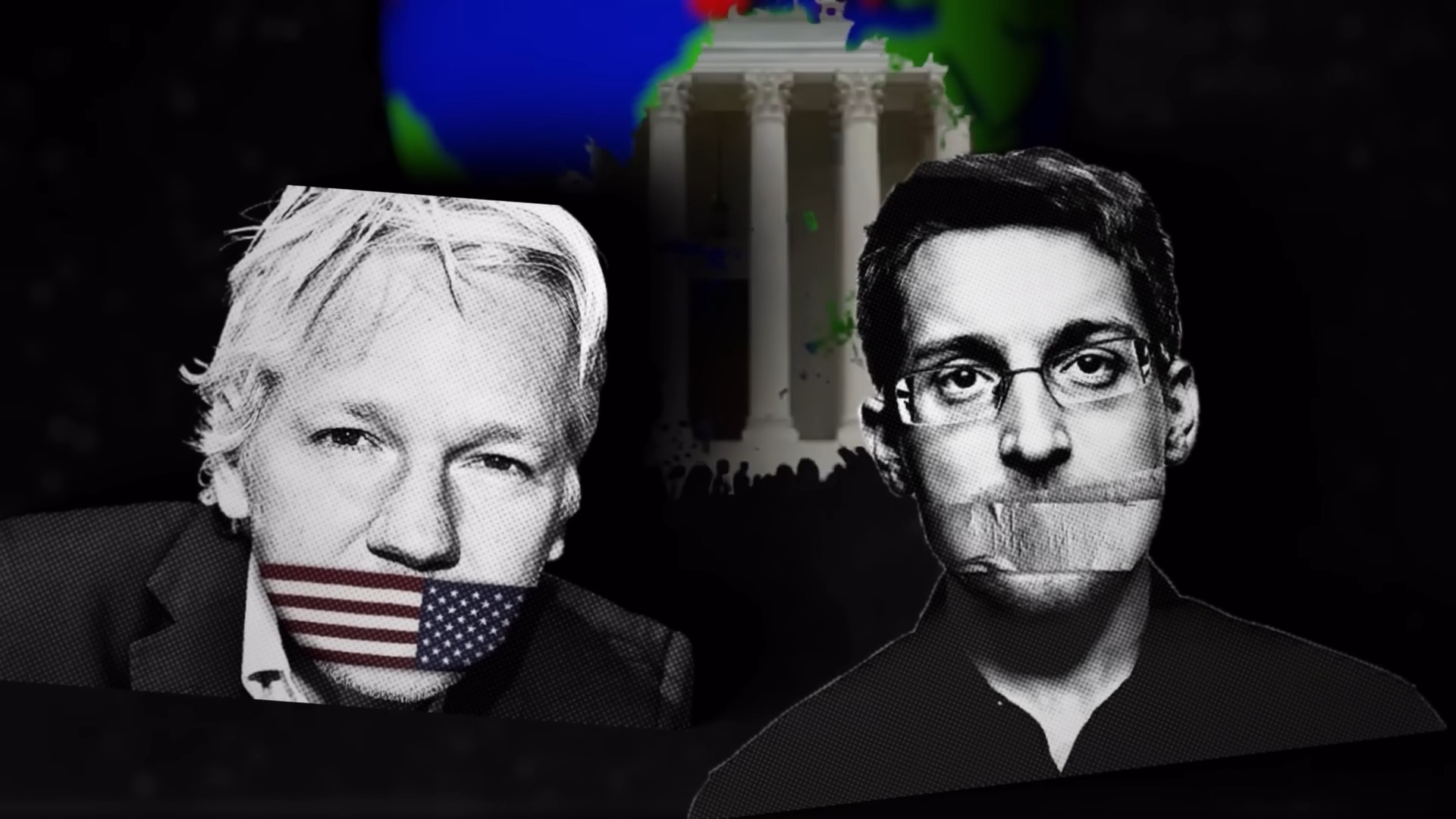
Where the concept of doublethink becomes most palpable is in the infallible truths Winston staunchly clings to, such as the mathematical certainty that two plus two equals four. However, when the Party asserts that two plus two equals five, it demands citizens not only embrace this new “truth” but also reject their previously held beliefs. Doublethink compels you to agree, and more disturbingly, believe that two plus two never equaled four.
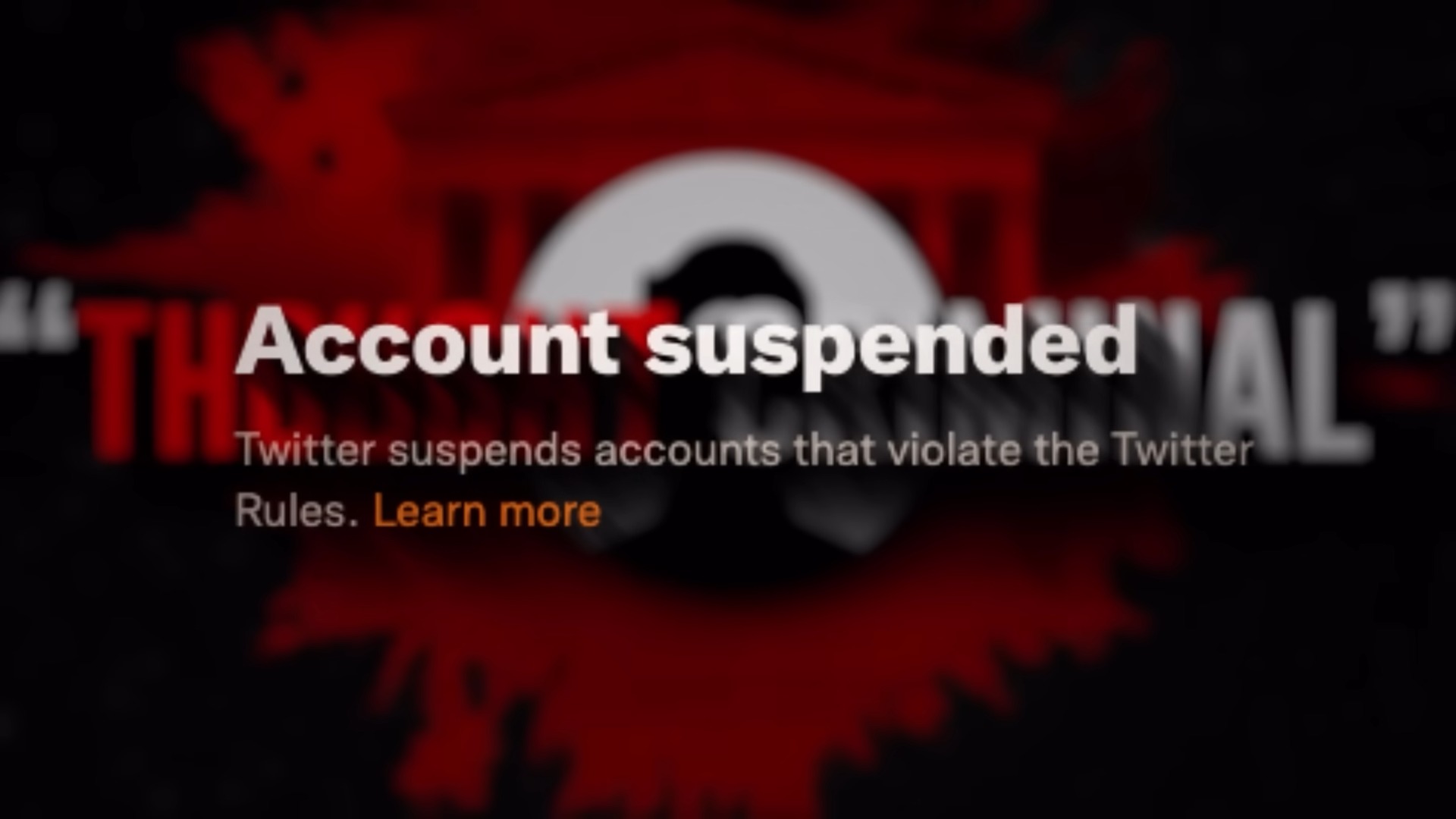
This manipulation extends beyond simple arithmetic truths. Suppose the Party declares gravity a fallacy, despite a citizen’s experiential understanding of it as a scientifically proven reality. In that case, doublethink insists that they accept this new “truth”, forgetting that gravity was ever a factual concept.
Through doublethink, the Party effectively erases historical realities, burying ideas deemed dangerous to its totalitarian rule. It is this psychological manipulation that allows the Party to maintain its iron grip on power, subdue potential dissent, and shape the citizens’ reality to its will. For Winston, doublethink embodies the horrifying potential of the Party to rewrite the past, control the present, and shape the future.
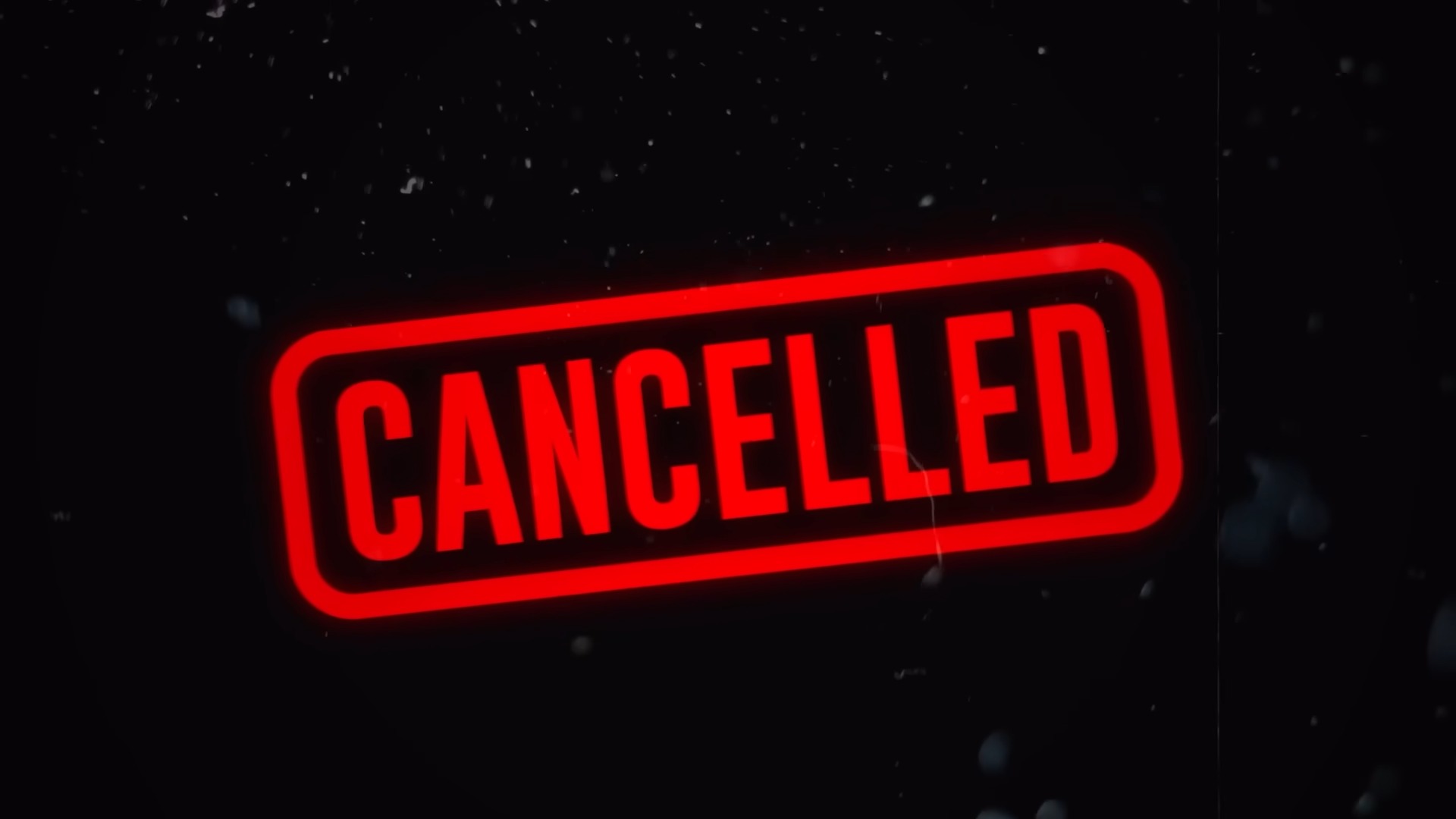
Final Summary
Nineteen Eighty-Four revolves around the life of Winston Smith, a bureaucrat serving the totalitarian government in London, in the dystopian world of 1984. The world, as imagined by Orwell, is divided into three oppressive superstates, with relentless surveillance and the perpetual threat of the Thought Police looming over its citizens. Winston, working for the Ministry of Truth, constantly alters historical records to align with the current propaganda peddled by the government. The nature of his job sows seeds of doubt about the regime within him.
Winston’s life takes a dramatic turn when he meets and falls in love with Julia, which fuels his recklessness and inspires him to resist the authoritarian regime. However, this defiance leads to his inevitable arrest and subsequent torture at the hands of the man he once believed was a rebel like him. The intense physical and mental torture transforms Winston into a loyal follower of Big Brother, a mere figurehead of the oppressive regime determined to retain power at any cost.
Nineteen Eighty-Four remains a potent exploration of what transpires when a society falls prey to fear, propaganda, ceaseless warfare, and mass surveillance used as tools to suppress individual liberties. Drawing inspiration from Nazi Germany, Orwell’s novel underscores the fragility of any society where the manipulation of truth and facts is rampant.
One Comment
Leave A Comment


George Orwell penned his dystopian novel, Nineteen Eighty-Four, in the late 1940s, a time when the world was still attempting to comprehend the complexities of oppressive regimes such as Hitler’s Nazi Germany. What sets Nineteen Eighty-Four apart is its speculative yet accurate portrayal of the mechanisms of control and political force. Despite being categorized as science fiction, the novel offers a disturbingly precise mirror to the prevailing socio-political conditions, hinting at Orwell’s deep understanding of the sinister undercurrents of totalitarian regimes. His nightmare, as presented in the book, serves as a stark warning of the potential perversion of power and the chilling implications for individual freedom and democracy.

Orwell paints a vivid picture of an authoritarian regime that exploits fear and manipulation as tools of control. The book’s ominous depiction of a society where dissenting opinions are crushed, surveillance is ubiquitous, and freedom is severely curtailed, reinforces the inherent dangers of authoritarian leadership. The government’s control over every aspect of human life prohibits innovation, creativity, and above all, the innate human spirit to thrive. This dystopia is a powerful symbol of the dehumanizing potential of absolutist rule. The ramifications of such a system seep into the very core of human existence, stifling individuality and innovation, and creating an environment hostile to the development and flourishing of the human spirit.

Torn Between Rebellion & Conformity
Orwell’s dystopia portrays surveillance as an omnipresent aspect of life in Nineteen Eighty-Four, enforced by the slogan “BIG BROTHER IS WATCHING YOU!” This chilling phrase stands as a potent symbol of the totalitarian regime’s intrusive reach into every facet of citizens’ lives. Big Brother, the ostensibly benevolent leader of Oceania, is ubiquitously represented as a mustachioed, robustly handsome man whose gaze seems to follow the observer from every angle. The underlying message of this disturbing visualization is twofold, serving both as a constant reminder of the Party’s omnipresence and as a tool to invoke fear and compliance.

In Orwell’s bleak vision, the telescreen is a sinister instrument of control and surveillance. Installed in homes and public spaces, it serves dual purposes. On one hand, it broadcasts state-sanctioned programs around the clock, which citizens cannot switch off, thus infiltrating their minds with propaganda. Simultaneously, it serves as an ever-watchful eye, monitoring citizens’ activities even during their most private moments. The telescreen’s relentless watchfulness exemplifies the loss of privacy and autonomy in this dystopian society, demonstrating the horrifying extent of control exerted by totalitarian regimes.

In Orwell’s grim landscape, resources are scarce and rationed, further underlining the totalitarian regime’s control over the populace. Essentials of daily life, such as food and clothing, are hard to come by. The scarcity of food serves as a stark reminder of the regime’s tight control over resources, making survival itself a struggle. The simple act of eating becomes an exercise in subsistence, with every scrap of food rationed and controlled by the state.

In addition to the food scarcity, things like razor blades, a basic necessity in ordinary life, are rare commodities. Their rarity echoes the deprivation and poverty that pervade society under the regime’s harsh rule. This isn’t a mere scarcity of supplies; it’s a well-orchestrated strategy to keep the populace in check, further entrenching the power of the authoritarian regime. By controlling access to even the most basic necessities, the regime maintains its stranglehold on the populace, keeping them perpetually dependent and powerless. The scarcity of food and necessities, therefore, isn’t just about physical deprivation; it’s a tool for psychological manipulation, designed to quash any possibility of rebellion or dissent.

The Social Hierarchy of Oceania
In the starkly stratified society of Oceania, Orwell delineates three distinct classes of citizens. At the zenith of the societal order is the Inner Party, the powerful elite who administer the various ministries of the government. Holding the reins of power, these individuals manipulate the machinations of the state, perpetuating their rule through control and fear.

The middle rung of this societal ladder is occupied by the Outer Party members, comprising people such as Winston. They perform bureaucratic roles within the ministries, serving the state while simultaneously being its victims. Their lives are marked by constant surveillance and psychological manipulation, leaving them devoid of freedom and autonomy.

At society’s bottom are the ‘proles’, who engage in strenuous manual labor, such as mining. Despite their lack of political power, they represent the majority of Oceania’s population, yet their potential for collective action remains untapped due to the state’s shrewd control mechanisms.
All citizens, but particularly the Outer Party and the proles, are subjected to incessant, aggressive propaganda, epitomized by the daily ‘Two Minutes Hate’. This propagandistic tool serves to direct citizens’ anger and frustration towards perceived enemies of the state, whether they be party traitors or foreign adversaries. Through the manipulation of emotions, the regime cultivates a climate of fear and hostility, thereby suppressing any potential dissent and reinforcing its grasp on power.

Winston’s Role and The Ministries
Winston Smith, the protagonist in Nineteen Eighty-Four, holds a position at the Ministry of Truth (Minitrue in Newspeak), the propaganda machine of the Party. His job involves the alteration of historical records to align them with the Party’s current version of events or “the truth.” As such, he meticulously revises old documents, effectively rewriting history to favor the Party’s narrative.
Other prominent ministries in Oceania include the Ministry of Peace (Minipax), which oversees the perpetual wars with Eurasia and Eastasia, the two other superstates in Orwell’s world. It stands as a paradoxical symbol of conflict and hostility, embodying the Party’s slogan “War is Peace.”

The Ministry of Plenty (Miniplenty) is tasked with the regulation of food, goods, and industrial production. It manipulates the scarcity of resources to control and suppress the population, reflecting the brutal reality of the slogan “Freedom is Slavery.”
Lastly, the Ministry of Love (Miniluv) is the most feared institution, responsible for surveillance, interrogations, and torture of those suspected of thought crimes – ideological disloyalty or rebellious thoughts against the Party. This ministry reinforces the chilling level of surveillance in Oceania, where even a misplaced expression or a word uttered in sleep could attract the wrath of the Thought Police, leading to the person’s vaporization– the complete erasure from all records and memories.

Each of these ministries serves to propagate one of the Party’s three main slogans, the last being “Ignorance is Strength.” The slogans, teeming with contradictions, encapsulate the Party’s manipulation of reality and truth, underscoring the terrifying power of totalitarian regimes.

The Immutable Nature of Truth versus The Party’s Manipulation
Orwell’s Nineteen Eighty-Four persistently grapples with the mutable nature of truth under the rule of the Party. One motif that reverberates throughout the novel is the protagonist, Winston’s, desperate clinging to certain irrefutable facts. He profoundly believes in the mathematical certitude that two plus two will always equal four. However, the Party’s omnipotent control and its capacity to manipulate reality make him fear that they might one day declare two plus two equals five. What is more disturbing is the likelihood that people, under the Party’s influence, might unquestioningly accept this as the truth.

This fear is not unwarranted. As Winston’s role in the Ministry of Truth demonstrates, the Party frequently alters past records, effectively changing the perception of reality. Hence, were anyone to check those records in the future, they would find that, as per the Party’s decree, two plus two has always equaled five. This disturbing concept brings to light the Party’s insidious control over the population’s minds, reshaping their understanding of reality as it sees fit. The Party’s control is so pervasive that it can make the population believe anything, even something as counter-intuitive as two plus two equalling five. The malleability of truth in Oceania underscores the terrifying power the Party holds over its citizens, manipulating their perception of the world and warping their understanding of the truth.

The advent of technology capable of constant surveillance invariably led to its exploitation as a tool for consolidating and maintaining power, especially to suppress the lower classes from posing any tangible threat. The imperative for maintaining a homogeneous culture is amplified due to its crucial role in preserving order. The state of perpetual war necessitates stringent enforcement of borders, compelling the superstate to vilify anything and anyone deviating from the norm. Winston’s experiences underscore this reality: the unrestricted movement of individuals across state borders is prohibited. Any semblance of acceptance or tolerance is discouraged; instead, the seed of hate is sown and nurtured. It is through these means that the status quo is maintained; without them, the entire system would crumble.

Doublethink and The Party’s Philosophy
In Nineteen Eighty-Four, the term “doublethink” represents the Party’s psychological control mechanism that compels citizens to accept two contradictory beliefs simultaneously as correct. This concept is a key pillar of the Party’s philosophy and serves to manipulate the perception of reality and truth, ultimately distorting citizens’ understanding of the world around them.

Where the concept of doublethink becomes most palpable is in the infallible truths Winston staunchly clings to, such as the mathematical certainty that two plus two equals four. However, when the Party asserts that two plus two equals five, it demands citizens not only embrace this new “truth” but also reject their previously held beliefs. Doublethink compels you to agree, and more disturbingly, believe that two plus two never equaled four.

This manipulation extends beyond simple arithmetic truths. Suppose the Party declares gravity a fallacy, despite a citizen’s experiential understanding of it as a scientifically proven reality. In that case, doublethink insists that they accept this new “truth”, forgetting that gravity was ever a factual concept.
Through doublethink, the Party effectively erases historical realities, burying ideas deemed dangerous to its totalitarian rule. It is this psychological manipulation that allows the Party to maintain its iron grip on power, subdue potential dissent, and shape the citizens’ reality to its will. For Winston, doublethink embodies the horrifying potential of the Party to rewrite the past, control the present, and shape the future.

Final Summary
Nineteen Eighty-Four revolves around the life of Winston Smith, a bureaucrat serving the totalitarian government in London, in the dystopian world of 1984. The world, as imagined by Orwell, is divided into three oppressive superstates, with relentless surveillance and the perpetual threat of the Thought Police looming over its citizens. Winston, working for the Ministry of Truth, constantly alters historical records to align with the current propaganda peddled by the government. The nature of his job sows seeds of doubt about the regime within him.
Winston’s life takes a dramatic turn when he meets and falls in love with Julia, which fuels his recklessness and inspires him to resist the authoritarian regime. However, this defiance leads to his inevitable arrest and subsequent torture at the hands of the man he once believed was a rebel like him. The intense physical and mental torture transforms Winston into a loyal follower of Big Brother, a mere figurehead of the oppressive regime determined to retain power at any cost.
Nineteen Eighty-Four remains a potent exploration of what transpires when a society falls prey to fear, propaganda, ceaseless warfare, and mass surveillance used as tools to suppress individual liberties. Drawing inspiration from Nazi Germany, Orwell’s novel underscores the fragility of any society where the manipulation of truth and facts is rampant.
One Comment
-
Captivating way of commenting on “1984”.
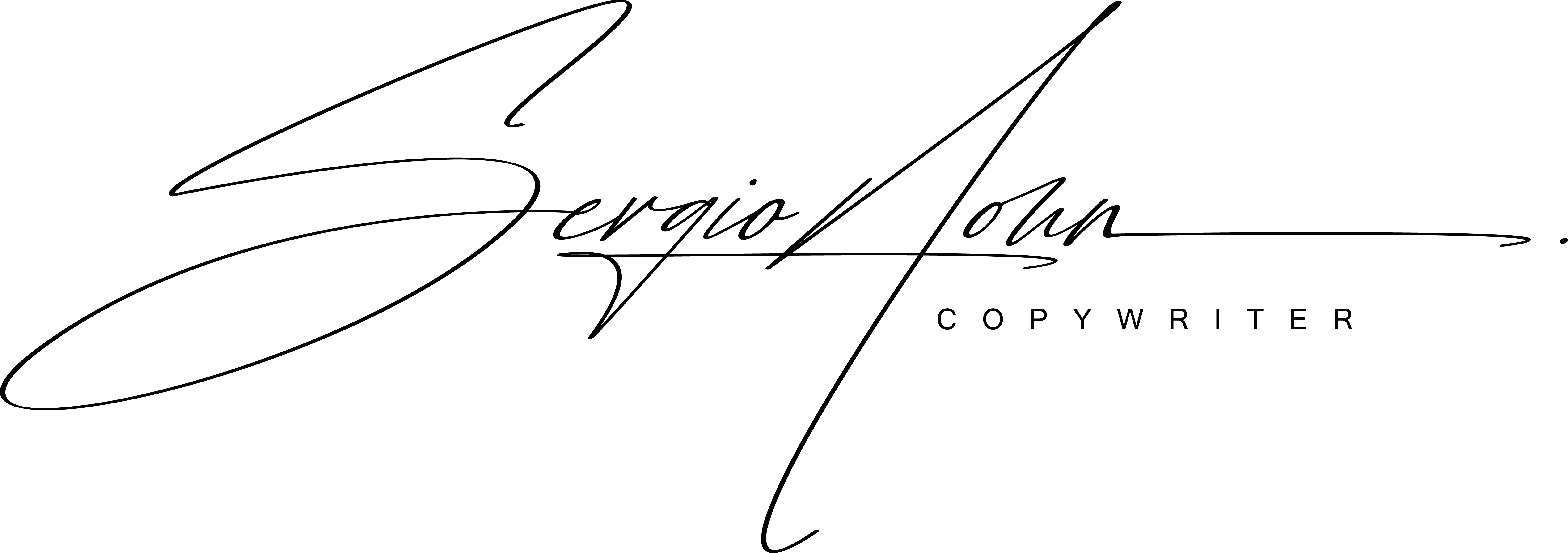
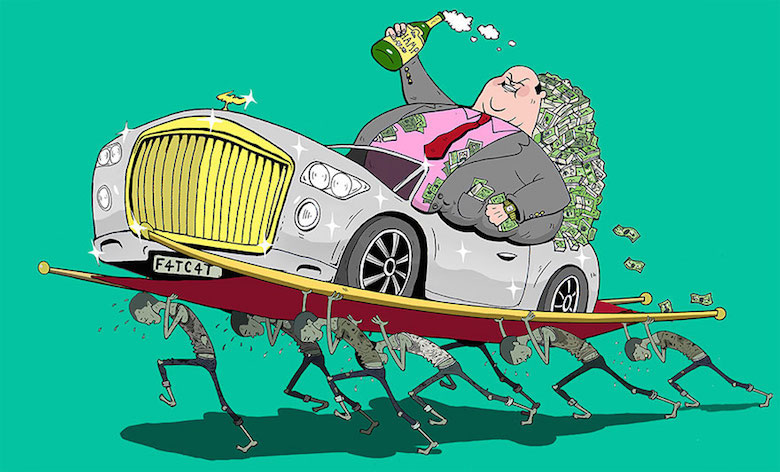



Captivating way of commenting on “1984”.